Taeri 한국어 6급 & Deutsch A1 French B2 & English C1 &日本語 Someday: Russian&Chinese| duolingo: teriset |
Don't wanna be here? Send us removal request.
Text
어린 왕자: vocab

Le Petit Prince - Antoine de Saint-Exupéry
chapters 3, 4:
차츰 - gradually
비위 - stomach
별안간 - suddenly
까딱까딱하다 - to bob, nod
괴상하다 - to be odd
곧장 - straight
목성 - Jupiter
금성 - Venus
화성 - Mars
독재자 - dictator
거역하다 - to disobey
명성 - fame
채집하다 - to collect
너그럽다 - to be generous, understanding
대수롭다 - to be important
더듬거리다 - to stumble
꿰뚫다 - to discern
4 notes
·
View notes
Text
어린 왕자: vocab

Le Petit Prince - Antoine de Saint-Exupéry (앙투안 드 생텍쥐페리)
chapters 1, 2:
맹수 - predator
보아뱀 - anaconda
밀림 - jungle
산수 - arithmetics
낙심하다 - to be disappointed
슬쩍 - lightly
총명하다 - to be smart
분별 있다 - to be sensible
뗏목 - raft
난파선 - a wrecked ship
동틀 - dawn
휘둥그레지다 - to be wide-eyed
되풀이하다 - to reiterate
조르다 - to pester, nag
거추장스럽다 - to be bothersome
생긋 웃다 - to smile sweetly
먼젓번 - previous
퇴짜를 맞다 - to get turned down
분해 - disassemble
끼적거리다 - to scribble
6 notes
·
View notes
Text
what do you mean i have to actually study languages to learn them???
709 notes
·
View notes
Text
pov: you study languages 💌

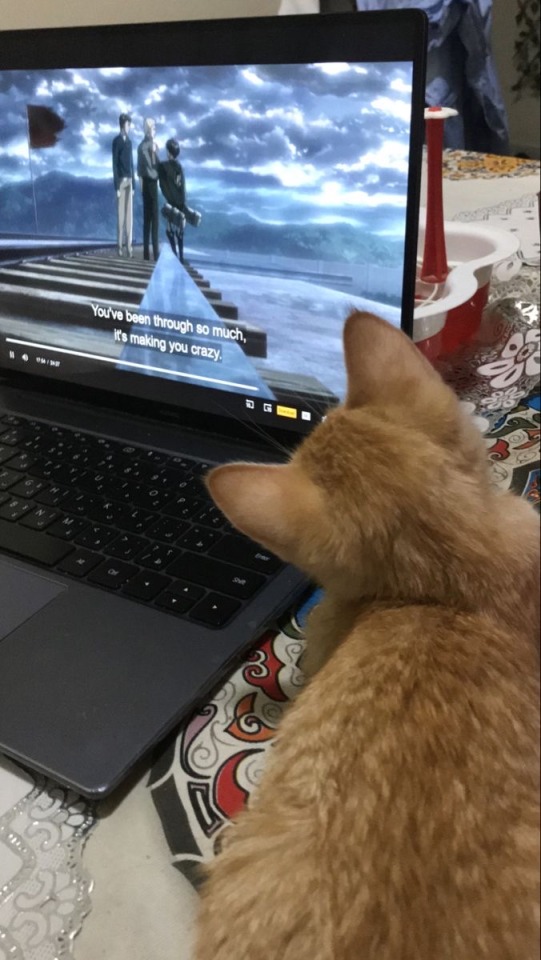
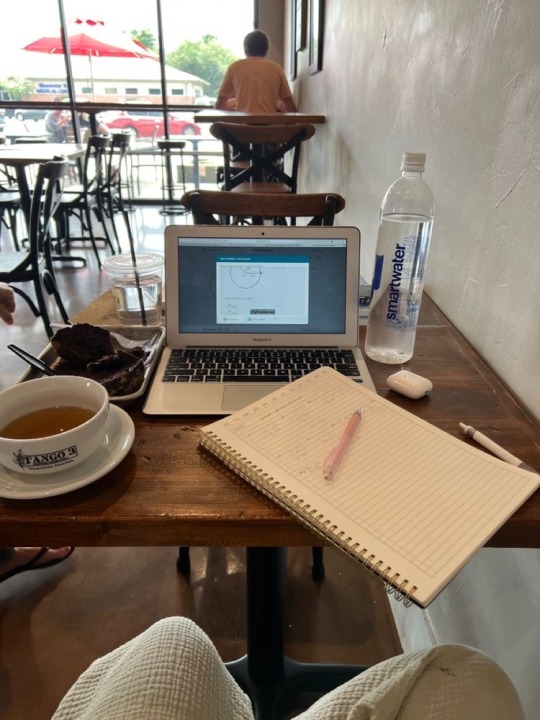

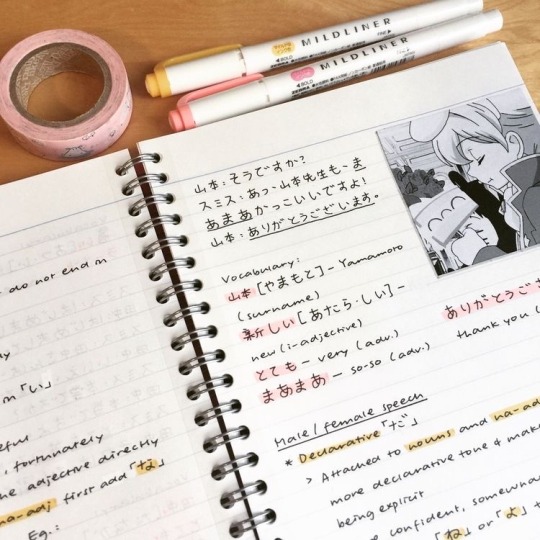
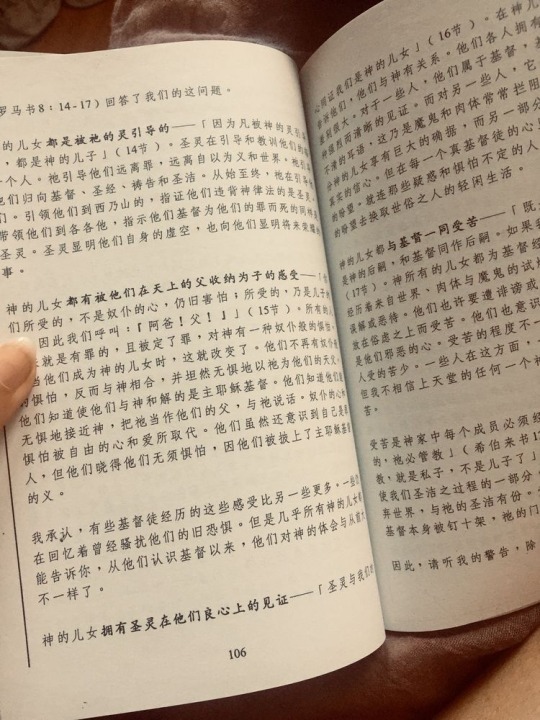
515 notes
·
View notes
Text
Korean Slang [UPDATED]
I logged into tumblr for the first time in like YEARS and found out that I promised an updated Korean slang post 2 years ago😅
갓생 (gat-saeng) ➡️ "that girl" lifestyle, someone who's productive
고인물 (go-in-mul) ➡️ someone who's played a game for a long time
꾸안꾸 (kku-an-kku)➡️ no-makeup makeup
누물보(nu-mul-bo)➡️ "who asked?"
띵언 (dding-eon)➡️ a good quote
머선129 (meo-sun-il-e-gu) ➡️ what's going on
무물보 (mu-mul-bo)➡️ ask me anything
반모(ban-mo)➡️ banmal mode (not use honorifics)
성덕(sung-deok)➡️ successful fan (a fan whose met their idol)
식집사 (sik-jip-sa)➡️ plant mom/dad
스불재(seu-bul-je)➡️ self-inflicted disaster
알잘딱깔센(al-jal-ttak-kkal-sen)➡️ doing something well/perfectly on your own
어쩔티비 (eo-jjeol-tee-bi)➡️ "what are you gonna do"
억텐 (eok-ten)➡️ (I have a lot to say but I won’t say it)
워라벨(wo-la-bell) ➡️ work life balance
자만추 (ja-man-chu)➡️ (hurts my heart)
케바케 (ke-ba-ke)➡️ case by case
아아 (ah-ah)➡️ ice americano
주불(ju-bul)➡️ tell me your address
킹받네(king-bat-ne)➡️ something/someone is annoying
493 notes
·
View notes
Photo


Seen on Goodreads: an innocent Spanish person asks about her odds of enjoying a German book in the original, is clobbered in the face by the reality of German
7K notes
·
View notes
Text
"Irish doesn't have a word for please, you have to say if it be your will" buddy do I have news for you about "please"
"Irish doesn't have a word for hello you have to use a shorthand religious blessing" buddy do I have news for you about "goodbye"!
"In Polish the word for car is that which walks by itself" BUDDY what do you think an AUTOMOBILE is?
you have got to understand that your mother tongue is not the model of language. all your words have secret histories and layers of meaning just the same as other people's words. the word you think of as just a word has etymology, it wasn't handed down from God as a finished word. English doesn't have a word for movie you have to either refer to the recording medium or use a short version of "moving picture", isn't that cute?
60K notes
·
View notes
Text
Interesting Korean Word Of The Day: To Love Or Hate That Is The Question
호불호가 갈리다 – To love or hate something/ for something to be polarizing
“마르마이트는 호불호가 갈리는 음식이다.” Marmite is a food that people either like or dislike.
“민트 초콜릿 아이스크림은 호불호가 갈리는 음식이다.” Mint chocolate ice cream is a food that people either like or dislike.
Break down of the word:
호불호: Likes and Dislikes
갈리다: to be divided/ to be split
49 notes
·
View notes
Text
zlibrary gone... FUCK TIKTOK FUCK BOOKTOK I hope that app burns in hell
110K notes
·
View notes
Photo
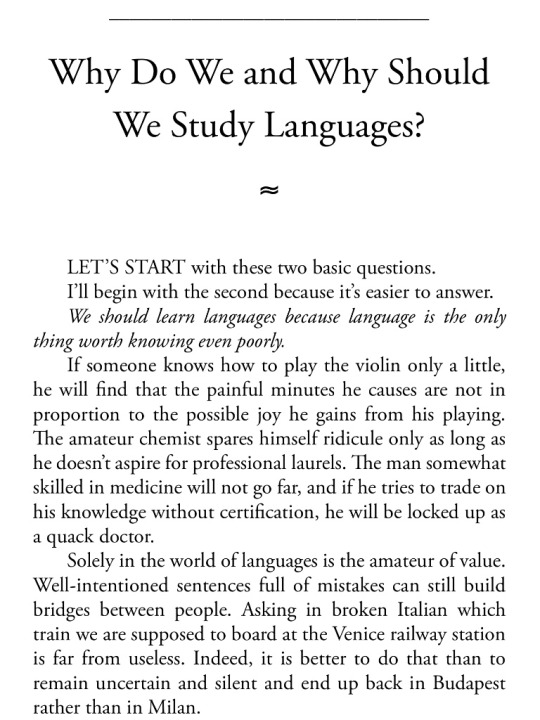
Excerpt from Kató Lomb’s “Polyglot: How I Learn Languages”
55K notes
·
View notes
Text
Learning a 3rd and/or 4th language because "my native language and english don't count" really is the ultimate european ✨aesthetic✨
1K notes
·
View notes
Text
MASTERLIST
(Korean-Learning Content)
Here Is A List Of Most Of The Content I Have Made So Far. (you can only add 100 links per post, so I have to make a second part I guess🤡. I'll link to it in this post whenever I finish doing that.)
Note: these are in no particular order. It's kind of all over the place, but it should still help you out😂
Beginner Topics
1. Seasons in Korean
2. Months In Korean
3. Vowels Hangul Short Quiz
4. Beginners Vocab Short Quiz
5. Days Of The Week
6. Tell Date In Korean
7. What's Next After Learning Hangul?
Korean Grammar
아니요 vs 아니에요 vs 아니라
는데, 은데, 인데 Lesson | All Usages
Masterlist Of Beginner Korean Grammar
좋다 vs 좋아하다
기 때문에 & 아/어/���서 & (으)니까
-안 vs -지 않다
How To Say "IF" In Korean
How To Ask Questions In Korean
(으)러 가다, (으)려고 하다, 기로 하다 Lesson
(으)ㄴ지 Lesson
Korean Dialogues & Conversations
1. Mini-Korean Conversation | Topic : Coffee | #1
2. Intermediate Korean Convo | Topic : Amusement Park | #2
3. Korean Conversation - Grammar-Focused | Topic : Haircut | #3
4. Low-Intermediate Korean Convo | Topic : Meeting For The First Time | #4
5. Grammar-Focused (ㄹ때, 지 말라고, & 어/아야 겠다) | Topic: Kids On Their Phones | #5
6. Beginner Korean Conversation + Lots Of Beginner Grammar Covered | Topic : Deciding Where To Eat | #6
7. Beginner Korean Conversation | Topic : Drawing
8. Korean Convo | Topic : Karaoke | #8
9. Intermediate Korean Dialogue | Topic : School-Related | #9
10. Beginner Korean Dialogue | Topic: Birthday presents
11. Short Beginner Dialogue | Topic : meet up
12. Beginner Korean Conversation | Topic : Taking Pictures
13. Intermediate Korean Dialogue | Topic : The Best Way to Make Ramen
14. On The Phone With My Girlfriend
15. Sending A Text To The Wrong Person
Reading Practices & Stories
Reading Comprehension Test | Topic: small talk
Story About Friend Moving Away
Listening Practice
Beginner Listening Practice #1
Korean Listening Practice #2
Korean Listening Practice #3
Vocabulary Lists
1. Jobs & Occupations List In Korean
2. School Vocabulary
3. Korean Homonyms | Part 1
4. Night-Themed Vocabulary List
5. Korean Homonyms | Part 2
6. Word Of The Day ~ 거북이
7. Mini-Vocabulary List - Weather
8. Common Korean Verbs > Short Video
9. Mini-Vocabulary List - Nature
10. Language Learning Vocabulary
11. Korean Homonyms | Part 3
12. Word Of The Day ~ 불
13. Word Of The Day ~ 약간
14. Health & Medical Terms
15. List Of Adverbs
House Vocabulary
16. Commonly Confused Korean Words 1
17. Commonly Confused Korean Words 2
18. Commonly Confused Korean Words 3
19. Korean Fruit Names
20. Korean Homonyms
21. Flower Vocabulary Words
22. Korean Love Words | words & phrases w/ 사랑
23. 지금 vs 이제
24. 알아듣다 vs 이해하다
25. Korean Synonyms
26. Korean Filler Words
27. Korean & Japanese Words
28. Korean & Japanese Words (part 2)
29. Hair Vocabulary
30. Shapes In Korean
31. Korean ROOT Words
Korean Numbers
1. How To Count From 1 to 1000 using Sino-Korean Numbers
2. The Difference Between Sino & Native Korean Numbers
3. Korean Numbers Quiz > 1 to 100
4. Korean Numbers Quiz > 100 to 1000
Idioms & Phrases
1. Korean Proverbs
2. 김새다 = Ruin The Fun | Idiomatic Expression #1
3. 어쩔 수 없다 = It Can't Be Helped | #2
4. How To Say Ignorance Is Bliss | #3
5. 쓸모가 없다 = It's Useless | #4
6. 기가 막히다 ~ "to be at a loss for words" | #5
7. 기가 죽다 ~ lose confidence/less energy and feel depressed | #6
8. How To Say I Don't Care | #7
9. 말도 안돼요
10. Motivational Korean Quotes
11. Idioms That Are Too Relatable
12. Korean Break-Up Lines & Quotes
13. Funny Korean Expressions
14. Non-Basic Korean Phrases
Tongue Twisters
1. Mokdong Royal | Short Tongue Twister | #1
2. 경찰청 ~ Police Headquarters | #2
3. Longest Korean Tongue Twister + Breakdown | #3
4. 3 Short & Fun Korean Tongue Twisters
5. Short Korean Tongue Twister: Moon
6. Giraffe Tongue Twister
Korean Culture
1. List Of Korean Holidays
2. Difference Between North & South Korea
3. Tropes Seen In Kdramas
Interesting Random Topics
1. 3 Ways To Say 'Heart' In Korean
2. Korean Text Slang
3. Korean Combination Words
4. Korean Study Materials
1K notes
·
View notes
Note
What is the difference between -게 하다 and -게 되다?
Great question! First, we need to understand that 하다 is active whereas 되다 is passive! Your next question might be, “but omg, SK101, I’m not good at English grammar, too; what the hell is passive and active?”
Another great question!
The active voice is when the speaker/subject performs the action or is described directly–they did it, caused it, performed it; you’re gonna see people commonly use these ways to explain the active voice. In English, the active voice can look something like this:
I studied Korean; (저는) 한국어를 공부했어요
As you can see, I (the subject) am the one that studied Korean of my own volition. I caused the “Korean studying.”
The passive voice is when the speaker/subject does not perform/cause/do the action. Instead, the subject is affected by the action/performance. I understand this may be difficult to understand, so I’ll spend more time on this.
When can you use the passive voice?
When we have more interest in the object that experiences the action
When we don’t know (or don’t want to express) who performed the action (this is an academic loophole when we didn't do the proper research to support a claim)
When we want to emphasize the action!
The passive voice is not grammatically incorrect (take it from a linguist and someone who minored in creative writing). You will hear people say that the passive voice is not good or is ungrammatical (some bs like that). Even in Korean, the passive voice is entirely natural and used in everyday contexts.
The passive voice in Korean may look like this:
한국어가 (저에게) 공부됐어요; Korean was studied (by me)
The prepositional phrase “by me; 저에게” shows that we know who studied Korean. This may still be confusing, so let me give you another example:
부엌을 청소했어요; I cleaned the kitchen.
부엌이 청소됐어요; The kitchen has been cleaned.
Let’s add more context to the sentence to understand the situation better.
집에 도착했을 때 부엌을 청소했어요; When I got home, I cleaned the kitchen (meaning, I saw the dirty kitchen and cleaned it)
집에 도착했을 때 부엌이 청소됐어요; When I got home, the kitchen was cleaned (meaning, someone (unknown or otherwise) cleaned the kitchen when I was out)
*gasp!* Yes, by now, you've noticed that 이/가 goes with passive!
Now, onto your question: what's the difference between -게 하다 and -게 되다?
-게 하다: causative
The causative aspect shows that A causes B to happen. Pretend you have a younger sibling–here are some examples:
동생은 저를 늦게 했어요; My sibling made me late
저는 동생이 문제를 이해하게 했어요; I made them understand the problem
저를 귀찮게 했어요; You (the sibling) bothered me!
(저는) 동생을 화장품으로 예쁘게 했어요; I made my sibling pretty with makeup
A (동생/저) causes B to happen. B does not mean the recipient (저/동생) of the action – B represents the action.
-게 되다; to become (passive)
This grammar point shows that B changes A! Let’s use the examples from above.
동생이 화장품으로 예쁘게 됐어요; my sibling became pretty with makeup
동생 때문에 제가 귀찮게 되었어요; my sibling has been bothering me
문제가 동생에게 이해하게 되었어요; my sibling came to understand the problem [more literally; the problem was understood by my sibling]
동생 때문에 제가 늦게 되었어요; I became late because of my sibling
Now, I'm sure you've noticed that there are two spellings of a conjugated '되다'. The only difference between '되었어요' and '됐어요' is that '됐어요' is a contraction of '되었어요'. You may have other Korean learners attempt to tell you that you write one [되었어요] and speak the other [됐어요]. This isn't not true; it's just not a rule written in stone. You are very much able to write the contracted '됐어요' instead of the regular '되었어요'. In fact, native Korean speakers do this all the time. It would be like saying we shouldn't write any English contractions because it's not grammatically correct--it's just wrong. The rules of '되다' are more complex than just written and spoken, but that's a blog for another day.
I hope this helped answer your question! If you're still confused, don't hesitate to send me another ask or pm me! I'm always open to clearing up any confusion or directing you to a source that may help!
Happy Learning :)
~ SK101
201 notes
·
View notes
Text
Czech-
“Zazvonil zvonec a pohádky je konec.”
“The bell rang and the fairytale is over.”
"Once upon a time" is a stock narrative phrase for beginning stories. Here are some interesting ones in different international languages for ending them.
Kurdish—
"Çîroka min çû diyaran, rehmet li dê û bavê guhdaran."
"My story went to other homes, god bless the mothers and fathers of its listeners."
Bengali—
"Aamaar kothati furolo; Notey gaachhti murolo"
"My story ends and the spinach is eaten by the goat."
(Goats eat the herbs from the root making it irreversible as a process.)
Spanish—
"...y vivieron felices y comieron perdices."
"..and they lived happy and ate partridges."
Persian—
،قصهی ما به سر رسید
.کلاغه به خونش نرسید
Qesse ye mā be sar resid,
kalāqe be xunaš naresid.
"Our tale has come to end,
(but) the crow hasn't arrived at his house."
Icelandic—
"Köttur úti í mýri, setti upp á sér stýri, úti er ævintýri"
"Cat out in the swamp, lifted its tail, the adventure is finished."
Dutch—
"En toen kwam er een olifant met een hele lange snuit en die blies het verhaaltje uit."
"And then came an elephant with a very long snout, and it blew the story out (over)."
Amharic—
"ተረቴን መልሱ አፌን በዳቦ አብሱ::"
"Return my story and feed me bread."
(It is a way of saying tell me a story for the one I have told you.)
Georgian—
"Čiri – ik′a, lxini – ak′a, k′at′o – ik′a, p′k′vili – ak′a"
(Disaster there, feast here... bran there, flour here...)
95 notes
·
View notes
Text
07-31-22 around the house
french — korean · english
porte (nf.) — 문 · door
télévision (nf.) — 텔레비전 · television
fenêtre (nf.) — 창문 · window
canapé (nm.) — 코치 · couch
plante (nf.) — 식물 · plant
table (nf.) — 테이블 · table
chaise (nf.) — 의자 · chair
cuisine (nf.) — 주방 · kitchen
évier (nm.) — 싱크대 · sink
balai (nm.) — 빗자루 · broom
oreiller (nm.) — 베개 · pillow
toilette (nf.) — 화장실 · toilet
salle de bain (nf.) — 욕실 · bathroom
douche (nf.) — 샤워 · shower
savon (nm.) — 비누 · soap
couverture (nf.) — 담요 · blanket
masque (nf.) — 안면 마스크 · facemask
nourriture (nf.) — 음식 · food
eau (nf.) — 물 · water
armoire (nf.) — 찬장 · cupboard
horloge (nf.) — 시계 · clock
poêle (nm.) — 화로 · stove
médicament (nm.) — 약 · medicine
volets (n.) — 블라인드 · blinds
bol (nm.) — 그릇 · bowl
study this in mochi
44 notes
·
View notes
Photo
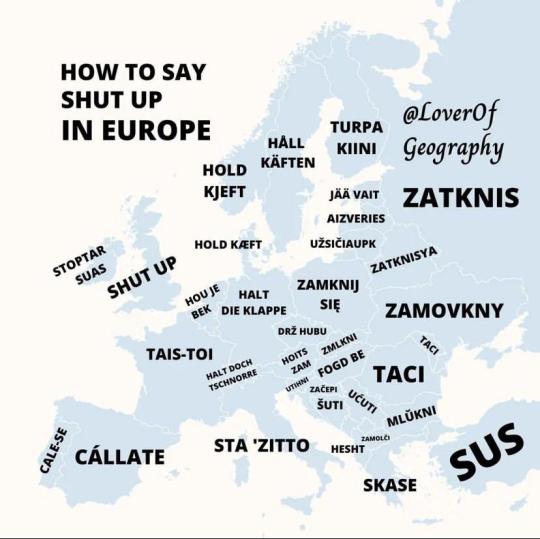
Saying “shut up” in European languages.
15K notes
·
View notes
Note
What is 는 거야/ 거예요 grammar?
Ok so I procrastinated on answering this because it’s extremely hard for me to put it into words and explain it to someone else. There’s nothing in English that remotely resembles this grammar pattern so it’s impossible to give direct translations. But I’ll do by best.
~(으)ㄴ/는 거예요 comes from ~(으)ㄴ/는 것이에요, quite literally “the thing of -ing.” It’s used to clarify the action/state of being that you’re talking about. It’s like saying “It is the thing that,” which of course sounds ridiculous in English and is why it’s impossible to translate it directly.
가: 뭐하는 거예요? – What are you doing? (Literally ‘What is the thing that you are doing?’)나: 내일 기말고사가 시작돼서 공부하는 거예요. – Final exams start tomorrow so I’m studying. (Literally ‘It is studying that I am doing’)
가: 괜찮아요? 아까 어디 다쳤대요. – Are you okay? I heard you got hurt earlier.나: 축구를 하다가 넘어져서 무릎이 많이 아픈 거예요. – I fell while playing soccer and my knee really hurts. (Literally ‘my knee is the thing that really hurts’)
가: 이 부채가 정말 이쁘네. – This fan is really pretty.나: 지난 달에 일본에 가서 산 거야. – I bought it when I went to Japan last month. (Literally ‘it is the thing I bought’)
가: 그건 질문하는 거야? – Is that a question? (Literally ‘is that questioning you’re doing?’)나: 아니, 그냥 논평만 하는 거야. – No, I’m just making a comment. (Literally ‘it is just commenting that I’m doing’)
178 notes
·
View notes